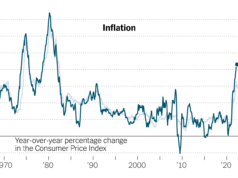So, can you receive 100 VA disability and military retirement pay? Here is a good question every veteran should ask.
Our veterans deserve the best. They have served our country faithfully, devoted their lives to protect ours and keeping external threats at bay.
For comprehensive insights into the VA disability rating system and how it may impact military retirement pay, explore detailed information on info on VA disability rating in our article on whether one can receive 100% VA disability and military retirement pay.
The least we could do is honor and acknowledge their efforts. The government is playing its part by offering retirement pay and VA disability compensation. But the question is can veterans collect both? Here is what you should know.
Can You Receive 100 VA Disability And Military Retirement Pay
The good news is you can get your VA disability and military retirement pay, provided you served for over 20 years. In addition, you should qualify for CRDP (Concurrent Retirement and Disability Pay).
How can you qualify for CRDP? Your disability rating will determine this. To qualify, you must have a disability rating of 50% or higher.
Besides CRDP, you can also be eligible to receive both benefits by qualifying for Combat-Related Special Compensation (CRSC).
What Will Happen To Your Retirement Pay If You Have a Disability Rating of Less Than 50%?
A higher disability rating of over 50% increases your chances of landing your VA disability and military payment. So, you should be slightly concerned if your disability rating is below 50%.
Veterans with a disability rating of less than 50% will have reduced retirement pay. In other words, the VA compensation’s value will lower their retirement payment.
The only way you can prevent this is by qualifying for CRSC.
What Does VA Disability Compensation Mean?
Most people on this page may already know what VA disability compensation is. But we don’t want to leave any stone unturned.
Firstly, how do you become eligible for VA disability compensation? The first thing is that you must have a disability. No veteran would like to retire with a disability, but that’s just one of the hazards attached to the job.
So, to be eligible and receive VA disability checks, you must have a disability. But that’s not all. The disability has to be service connected.
For instance, if you sustained injury from an IED explosion while on active service in Afghanistan, you’re eligible for this compensation.
In addition, if you had something like asthma before entering military service, and it escalated during service, you’re also eligible for this compensation.
A Handy Tip: Two veterans can receive different VA disability compensation. That’s how it works. The level of disability sustained determines the amount of compensation you’ll receive.
Of course, if your disability is severe, the compensation would likely be higher. The amount received for VA disability benefits usually range from a few hundred dollars to around $3,000 per month.
Please note that only veterans that sustained service-connected injuries qualify for disability benefits. Thus, if you have a car accident when you arrive home, you won’t receive disability benefits.
In plain terms, you are not eligible for the benefit.
How To Increase Your VA Disability Rating
You should be looking at increasing your disability rating. Ensure it is 100 percent, if possible.
Below are ways you can increase your rating and watch your compensation improve. There is so much you can achieve by improving your disability compensation.
Here are ways you can increase your rating.
- Get treated. Since the injury sustained is service-connected, gather enough evidence to support your claim. Get medical reports and keep them safe. Please note that only service-related injuries are considered for disability compensation.
- Prepare all the documents regarding your service-connected disabilities, and be ready to state how those disabilities are affecting your daily living.
- Apply for a secondary service connection. You’ll require it for conditions connected to any existing disability or disabilities.
- If you’re not pleased with your current rating, feel free to request a reevaluation. You might get lucky this time.
- Did you disagree with the decision the VA gave concerning your disability? If yes, file a NOD (Notice of Disagreement).
- Are your service-related disabilities making it impossible for you to gain employment? If yes, you can use that to increase your VA rating and get more compensation. All you have to do is file An Individual Unemployability (UI) claim.
- Do you disagree with the Regional Office’s decision? If yes, send an appeal to the BVA (Board of Veterans Appeals). They may look into your case and help you sort things out.
- Do you have blindness or lose a limb while on active service? If yes, you should receive reasonable compensation since you have severe disabilities. What you need to do is submit a Special Monthly Compensation (SMC) Claim.
- Get a medical report from a specialist or private physician that supports your request for a higher disability rating.
- If your disability is getting worse, you have the opportunity to push for higher rating. Submit a claim to the relevant authority for an increased rating, citing the worsening of your service-connected disability.
- Was your claim for a higher disability rating denied? Then it’s time to re-strategize. You can do so by seeking the help of a Veteran Service Organization (VSO) and asking them to file or appeal a claim on your behalf.
- Another way to increase your disability rating is to appeal a decision by the authorities denying the increment. You can appeal to the U.S. Court of Appeals for Veterans Claims. So, if you don’t accept the BVA’s decision, file an appeal with immediate effect. You can get an attorney to help you navigate through the process.
What Should Motivate A Veteran To Sort Ways To Increase Their Disability Rating?
We have shared ways you can increase your VA disability rating. Now, the question is, what should motivate you to seek a review and improve your disability rating?
Many veterans like you are already working tirelessly to increase their ratings, and here are some of the reasons they keep pushing despite how demanding the process can be.
- A higher rating means higher compensation. With this, you can get specialized medical treatment to prevent the disability from worsening. The most important thing is to ensure the disability doesn’t degenerate.
- There’s no feeling greater than being recognized as veterans who gave their all to protect the country and its citizens. The government can only prove that by offering higher monetary compensation. It validates all the challenges and sacrifices veterans have paid for the country’s well-being.
- Higher compensation will give veterans a better quality of life and financial stability. A veteran with family and disability needs this more than anything. Higher compensation will make it possible to cater to the family and give them the life they deserve.
- Increase in the possibility of obtaining Social Disability Benefits.
- When veterans with disabilities are paid higher compensation, it gives them a feeling that the government understands the impact the disability has on their lives. Specific disabilities can make it impossible for veterans to work or do things they used to. There’s nothing more painful than being disabled while serving your country and you’re broke because of that disability.
- A higher compensation rating will make veterans eligible for (TDUI) Total Disability based on Individual Unemployability. This is true for veterans who can’t maintain or obtain gainful employment because of their service-connected disabilities.
Conclusion
So, can you receive 100 VA disability and military retirement payments? Yes, you can. However, your disability rating will play a significant role in this. You can also receive this payment if you have served in the military for at least 20 years.
You need to qualify for the CRDP (Concurrent Retirement and Disability Pay) to receive both benefits too.
How can one qualify for Concurrent Retirement and Disability Pay? Your disability rating will play a significant role in this. To qualify, you must have a disability rating of below 50%.
In addition to Concurrent Retirement and Disability Pay, you can also become eligible to receive both benefits by qualifying for Combat-Related Special Compensation (CRSC).
We also discussed ways you can increase your disability rating to get higher compensation. You can read and implement the tips shared in that section.














